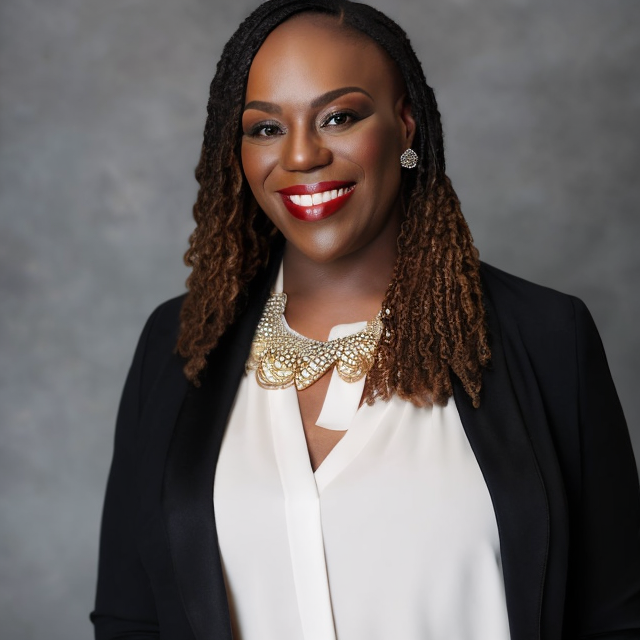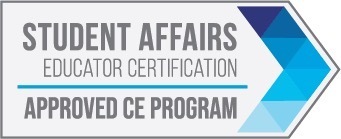
Cracked and Empty Cups: Elevating Health and Wellness in the Student Affairs Profession
In the fast-paced world of student affairs, professionals often find themselves grappling with the challenges of maintaining personal health and wellness. Join us for an insightful presentation that not only addresses strategies for individual well-being but also underscores the crucial role of leadership in fostering a healthy organizational culture. Through engaging discussions and actionable insights, this session aims to empower individuals to fill their cups with sustainable practices, while creating environments that promote the flourishing of the teams they are on or lead.
Learning Objectives
- Recognize and Mitigate Burnout and Stress:
- Understand common signs of burnout and stress specific to student affairs professionals, gaining insights into early warning signs.
- Learn proactive strategies to address personal well-being, fostering resilience and mitigating the impact of stressors.
- Integrate Self-Care for Individuals and Leaders:
- Explore practical self-care techniques tailored to the demands of student affairs work.
- Learn to seamlessly integrate these strategies into daily routines, fostering sustainability and resilience for both individuals and leaders within the profession.
- Cultivate Supportive Environments Through Inclusive Leadership:
- Recognize the pivotal role of leadership in shaping the well-being of student affairs professionals.
- Learn how leaders can integrate self-care principles into their practices, foster inclusive and supportive leadership, and create environments that encourage open dialogue, collaboration, and a sense of belonging within the professional community.
- Develop Personalized Wellness Plans:
- Engage in the process of developing personalized wellness plans that align with individual needs and goals.
- Understand how to set realistic expectations, establish boundaries, and prioritize self-care practices that contribute to sustained personal well-being throughout a career in student affairs.

Shawnté Elbert, Ed, D.
Contributing Faculty, PhD Health Education & Promotion | Chief Health Equity Officer
Walden University | Columbus Public Health Department
Shawnté Elbert, EdD, a trailblazing figure in college health and wellness, has dedicated 18 years to student well-being and success. As the Chief Health Equity Officer for Columbus Public Health, she leads the Center for Public Health Innovation. A respected administrator, her focus on mentoring nurtures personal growth and leadership development. Elbert champions racial health equity, ensuring every student has equitable access to quality services. Her expertise in harm reduction, prevention, and policy development creates safer environments. A first-generation college student, she passionately supports historically marginalized students and serves as a mentor. Elbert's journey from educator to administrator showcases her commitment to health equity and education, leaving an enduring legacy. She is a co-owner of Sister WELLS, Counseling, Coaching & Consulting, PLLC, and resides in Columbus, OH, with her husband and two boys.

Sherrá M. Watkins, Ph.D.
Associate Vice President for Student Health & Wellness
University of Utah
Sherrá Watkins, PhD, a distinguished clinical psychotherapist and certified coach, boasts a decade of mental health and wellness expertise. Presently, she is the Associate VP of Student Health and Wellness at the University of Utah, and she passionately works to enhance access to counseling and addiction services for historically marginalized groups. With four degrees from East Carolina University, including a Doctoral degree in Rehabilitation Counseling & Administration, Watkins is celebrated by Zeta Phi Beta Sorority, Inc., and recognized in the ECU Leadership Awards' 40 under 40 Inaugural Class. As a sought-after keynote speaker and author of "Healing – In Review," she provides invaluable tools and journaling for readers to navigate their healing journeys. Residing in Salt Lake City with her husband and two sons, Watkins maintains her dedication to self-care and personal growth through recent publications.

Joi Alexander, MCHES
Professional Title: Director, Wellness Empowerment Center
Georgia Tech
Joi Alexander serves as the Director of the Wellness Empowerment Center at Georgia Tech. She plays a key role in proactively leading the development and implementation of health well-being initiatives and programs aligned with evidence and best practices to create an innovative approach to Health and Well-Being for the Georgia Tech community. A part of her role is to collaborate with various interdisciplinary on and off-campus stakeholders to enable the development and implementation of key programs and initiatives related to health and well-being. In addition, she serves on the leadership team for the Cultivate Well-Being Advisory Board Committee at Georgia Tech, where she can use her public health background to promote and empower culture change throughout Georgia Tech’s campus.
Joi received her master’s and bachelor’s degrees in Health Education and Promotion from East Carolina University. She is currently in the last year of her doctorate in public health from Georgia State University. Joi also teaches and serves as a faculty lead for Southern New Hampshire University. She has close to 15 years of progressive experience in public health, a wealth of health and well-being knowledge, and a deep commitment to health equity, diversity, and inclusion. A true advocate for creating diverse and inclusive spaces that empower individuals to choose healthy lifestyle choices that facilitate success and lead to happy, healthy, and well communities.

Alicia Battle, Ph.D.
Director Teaching Health Center
Access Health Louisiana
With nearly 30 years of experience as a public health educator, Dr. Battle has an unwavering commitment to equity-minded programming that fosters comprehensive personal and professional success. Dr. Battle’s primary practice setting is college and university campuses. Her background includes leadership experience in both academic and student affairs. She has led and supported educational and co-curricular infrastructure for faculty, staff, and students. For example, during her time at the University of Alabama Birmingham School of Medicine. She was responsible for wellness programming, student outreach, student leadership development, mentoring and peer tutoring programs, and the organization, management, and evaluation of student activities. She also coordinated orientation, facilitated class meetings, and advised all 41 registered student organizations, including a student-run free clinic. As the Director of Alcohol Education Initiatives for Tulane University (a position she created) and the Director of Health and Wellness Education for Middlebury College, she worked collaboratively with faculty, staff, administrators, students, and community members to develop, coordinate, promote, and deliver population level prevention programs.
Her background includes a track record of identifying new opportunities, creating pipelines and partnerships, and engaging in community at the local, state, and national levels. The person-centered approach she brings to her work is reflected in her career trajectory. After spending 17 years in the field as a practitioner, she entered the classroom full-time in 2013. Dr. Battle has recently returned to the field and is currently serving as the Director of the Teaching Health Center at Access Health Louisiana. Alicia holds a Bachelor of Arts in Philosophy, a Master of Science in Public and Community Health, and a Doctor of Philosophy degree in Health Education. She also possesses the credentials of a Master Certified Health Education Specialist. For Dr. Battle, being a public health educator is not simply something she does. Being a health educator is who she is as a professional. And working with communities to close equity gaps is not merely a practice focus. She sees it as a lifestyle.
Continuing Education Credits
NASPA has been approved by the Higher Education Consortium for Student Affairs Certification to provide CE credit for Certified Student Affairs Educators (CSAEd). NASPA is solely responsible for all aspects of this program.
Participants who view this session will be eligible for Continuing Education (CE) credits in the Core Student Affairs Educator Certification (CSAEd™) continuing education.
Guidelines for earning CE credit:
1.5 CE is awarded for attending this live session OR watching it on-demand for ONE category of Continuing Education. You can not receive more than 1.5 credit hours total.
No partial credit will be rewarded.
Participants must also complete the feedback survey in the Online Learning Community.
Reach out to virtuallearning@naspa.org for the continuing education certificate for Social Justice and Inclusion.
To receive CSAEd credit, attendees must complete the feedback survey that offers the certification in each session. Once you have attended all the live sessions or watched the on-demand sessions for which you would like to request credit, visit the Continuing Education (CE) website to fill out the Student Affairs Education Certification Request Form for all the sessions. All certificants must fill out one for the live session and a separate one for the on-demand sessions.
Visit the Continued Education (CE) website to learn more regarding deadlines and receive your certificate of completion for the Virtual Conference.



